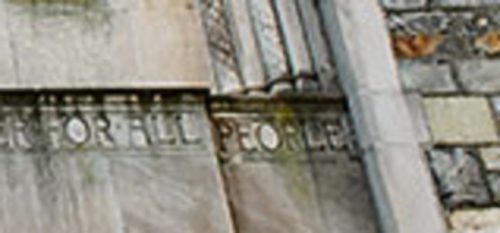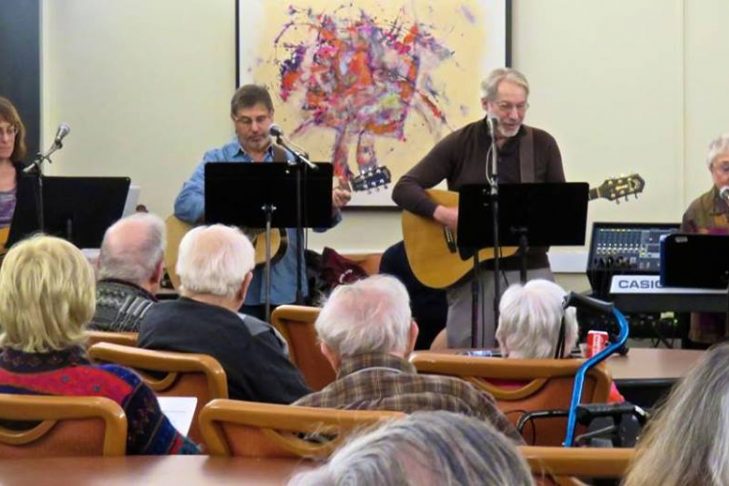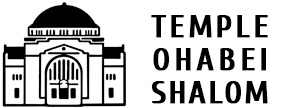In my time away from the office, one of my great pleasures is singing with the Zamir Chorale. And one of the great pleasures of singing with Zamir is our long association with Hebrew Senior Life. When our normal rehearsal space is unavailable, we frequently use the sanctuary at HSL as a home-away-from-home. And every year, we give back by singing a free concert for the residents at that facility. This event never fails to stir deep emotion. It is amazing to see people whose lives seem so attenuated by old age and disability revived through the power of music. (This year, one of the folks came to the performance in a wheelchair, attended by an aide, but left dancing! I am not kidding.)
For various reasons, this week’s rehearsal was at Hebrew Senior Life. As I was milling about during a break in rehearsal, I noticed a list of etiquette expectations taped to the wall of the HSL sanctuary. Some of it is just what you’d expect: don’t bring food and drink into the sanctuary, treat the sanctuary as a holy space. Some of it took my breath away, though, with its inclusiveness. This beautiful document instructed explicitly that everyone who comes to the sanctuary to pray is welcome there, without exception. It specified that patients with dementia who may call out or otherwise exhibit surprising behavior were not to be regarded as disruptive but rather welcomed.
This attitude of welcome reminded me very much of Temple Ohabei Shalom. Our vibrant community is firmly committed to inclusiveness. From the TCEE team pulling together to carry a boy who was using a wheelchair down the steps, to the ARS faculty crafting a meaningful Bar Mitzvah experience for a student with Down Syndrome, to the everyday, week-by-week participation of a wide range of people from all walks of life, and with all manner of challenges; our community welcomes and supports everyone.
In just a few weeks, my first born is scheduled to become a Bar Mitzvah. In his portion, Parshat Terumah, is this beautiful line:
“And let them make Me a sanctuary, that I may dwell within them.”
It speaks to me of the way in which creating a space for holy encounter is self-fulfilling. When we set aside space and time to pray, to worship, to be with others in community; it is a way of setting aside space and time for the Divine. One of the things I feel proudest of at Ohabei Shalom is the way we welcome people, wherever they are on their journey and whatever condition they might arrive in, and make space in our lives and theirs to experience the blessing of sanctuary, the blessing of a holy place.
There is an inscription above our sanctuary doors that reads, “My house shall be called a house of prayer for all people.”

And so it is.
P.S. My worlds will collide again later this year when the Zamir Chorale sings at Ohabei Shalom as part of the 175th Anniversary celebration. Mark your calendar for October 29 – I already have!
This post has been contributed by a third party. The opinions, facts and any media content are presented solely by the author, and JewishBoston assumes no responsibility for them. Want to add your voice to the conversation? Publish your own post here. MORE


